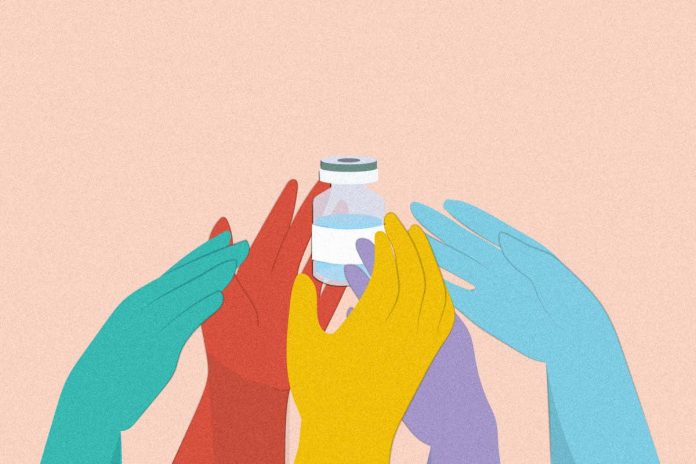The fastest way to end the covid-19 crisis is for countries to put the interests of the world ahead of their own, says Seth Berkley
Health
| Comment
3 February 2021

IMAGINE if, when a pandemic swept across the globe, scientists responded quickly to develop effective vaccines only for a small number of wealthy countries to buy up almost the entire global supply, leaving virtually none for the rest of the world. That is precisely what happened in 2009 with the H1N1 flu pandemic. We must not allow it to happen again with covid-19.
In some ways we got lucky with H1N1: the virus became less virulent over time and vaccine supplies eventually increased enough to be included in the seasonal flu shot, enabling more people to get access. The jury is still out on whether something similar will happen with the coronavirus, but, either way, a return to normality will continue to elude us until people in all countries are protected.
Thankfully, we now have several vaccines, so to end this crisis there must be rapid, fair and equitable access to them, particularly for those people living in the world’s poorest countries, which are most in danger of missing out.
Advertisement
This is the goal of the global vaccine coalition COVAX. Along with my colleagues at Gavi, the Coalition for Epidemic Preparedness Innovations and the World Health Organization, we are working hard to make sure that covid-19 vaccines don’t just end up going to the highest bidder. With 190 governments and economies involved, representing 90 per cent of the global population, we are now on the cusp of beginning vaccination.
This month, the first of more than 2 billion doses will start to be rolled out to high-risk individuals in 92 lower-income countries. For people in these countries to get new vaccines within a matter of weeks of those in the wealthiest nations is simply unprecedented. However, challenges still remain.
Despite working together with COVAX, governments are under immense pressure to secure doses for all their citizens. This means countries are still seeking bilateral deals with vaccine manufacturers, and these risk placing additional constraints on supplies at a time when they will be most limited. We are already seeing the consequences of this with supply shortfalls in many countries.
If governments continue with this kind of vaccine nationalism and if manufacturers only offer covid-19 vaccines to the highest bidders, just like in 2009, this will only prolong the crisis. Even if doses are promised to every country further down the line, delaying the availability of doses around the world will allow the coronavirus to continue to circulate, mutate and potentially adapt better to the human host. That works against everyone’s best interests.
While COVAX was created with the world’s poorest people in mind, it works to everyone’s benefit. For the lowest-income nations, which would otherwise be unable to afford these vaccines, COVAX is quite literally a lifeline and the only viable way in which their citizens will get access to covid-19 vaccines.
However, there are also many upper-middle-income nations that can afford to pay for their vaccines yet lack the resources to secure doses for their citizens through bilateral deals with manufacturers. And for those 35 or so governments that are wealthy enough to secure bilateral deals, it acts like an insurance policy, guaranteeing them doses if those deals should fail, but also protecting their citizens through vaccinating others. In a global pandemic, you are only safe if everyone is safe.
More on these topics:











